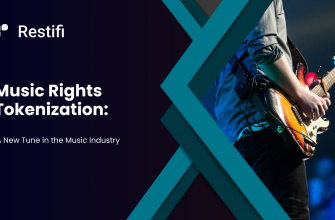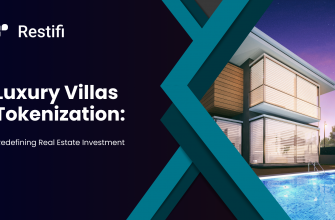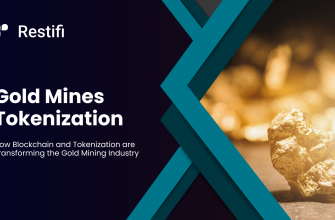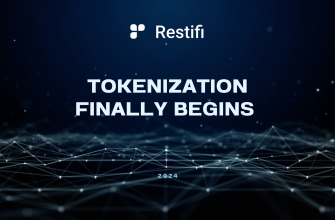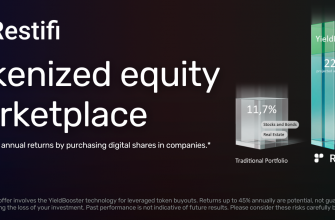The hospitality industry is witnessing a significant shift towards digital innovation and transformation, with digital strategies being employed on various digital platforms. One trend that has garnered immense attention is the concept of tokenization, a blockchain tokenization technique that offers numerous tokenization benefits. Particularly in developing countries like Kenya, tokenization provides a new method to establish Special Purpose Vehicles (SPVs) and stimulate investment in the tourism sector through digital innovations. This article offers a comprehensive guide on how to tokenize a business, specifically in the realm of Kenyan hotels.
- The Era of Digital Transformation in the Hospitality Industry
- Tokenization: A Key Trend in the Digital Era
- Blockchain: The Backbone of Tokenization
- Creating Special Purpose Vehicles (SPVs) for Tokenization
- Steps to Create SPV and Tokenize a Hotel Business
- 1. Setting up the SPV
- 2. Acquiring the Hotel by the SPV
- 3. Pre-Tokenization Preparations
- 4. Tokenizing the Hotel
- 5. Token Offering
- 6. Post-Tokenization Management
- Conclusion
The Era of Digital Transformation in the Hospitality Industry
Digital transformation, with its myriad digital transformation benefits, has become a pivotal factor in the survival and growth of businesses across industries. In the hospitality sector, digital strategies and digital innovations have brought about significant changes in how businesses operate, interact with customers, and manage payment systems on digital platforms. The customer-centric hospitality industry is leveraging digital services to enhance customer experience and achieve operational excellence.
Automation, one of the many digital innovations, is not just about convenience or the personnel you can save on, it enhances the whole process and customer experience. By automating manual tasks with digital tools, staff simply have more time to engage with customers.
The use of digital platforms and digital innovations is enabling businesses to connect payment systems, such as tokenized payments, and thereby improve operations. For instance, unified commerce, which synchronizes disconnected payment channels, can lead to more efficient processes and a more convenient experience for customers.
Tokenization: A Key Trend in the Digital Era
Tokenization is a process that involves converting rights to an asset into a digital token on a blockchain. This process enables assets, including the tokenization of real estate, to be divided into smaller, more affordable units, making them accessible to a wider range of investors. These digital tokens can represent anything from real estate tokens and works of art to intangible goods like licenses.
Tokens not only make the replacement of conventional securities by blockchain technology possible, but they also convert any tangible assets, including the tokenization of real estate, into ‘tokens’ and make them accessible to all investor groups. These real estate tokens represent tokenized assets that are accessible to all.
Tokenization, particularly the tokenization of real estate, can potentially revolutionize the real estate industry. By creating real estate tokens, it eliminates the need for intermediaries, reduces transaction costs, and increases efficiency, thereby offering a new perspective on tokenized real estate.
Blockchain: The Backbone of Tokenization
Blockchain, the underlying technology of tokenization and a digital ledger, is a distributed system that records transactions across many computers in blockchain networks, ensuring that the records cannot be altered retroactively. This technology, with its blockchain applications, is particularly useful in the hospitality and tourism industry, where it can facilitate new types of transaction platforms and improve the delivery of ‘digital assets’, such as hotel room bookings through blockchain projects.
Creating Special Purpose Vehicles (SPVs) for Tokenization
An SPV is a subsidiary created by a parent company to isolate financial risk, often used in the tokenization of real estate. For instance, a tokenization platform can facilitate the tokenization of a hotel asset in Kenya through an SPV set up in the Cayman Islands. This structure combines the strengths of the Cayman Islands’ conducive regulatory environment with the benefits of asset tokenization, creating tokenized real estate investment opportunities.
Steps to Create SPV and Tokenize a Hotel Business
The process of creating an SPV and tokenizing a hotel business, a form of real estate tokenization, involves several steps, from setting up the SPV and acquiring the hotel asset to managing the tokenized assets post-tokenization.
1. Setting up the SPV
The first step to create an SPV involves incorporating a company in a jurisdiction that offers a conducive regulatory framework, such as the Cayman Islands.
2. Acquiring the Hotel by the SPV
Once the SPV is set up, it can lease or purchase the hotel on a leasehold basis, a form of real estate investment.
3. Pre-Tokenization Preparations
Before tokenization, conduct a thorough asset valuation of the hotel and a feasibility study.
4. Tokenizing the Hotel
The next step involves developing the token on a suitable blockchain platform.
5. Token Offering
After the token is developed, it’s offered to potential investors.
6. Post-Tokenization Management
After the token offering, it’s critical to set up transparent reporting mechanisms and establish a redemption or buy-back mechanism for the tokenized real estate assets.
Tokenization offers a new way for businesses to attract global investors, facilitate liquidity, and achieve operational excellence through digital strategies. However, it requires a deep understanding of legal, financial, and technological aspects in both jurisdictions. Therefore, it’s critical to engage with professionals who can provide the necessary expertise and guidance in this venture of real estate tokenization.
Conclusion
In the digital transformation era, businesses are finding it increasingly crucial to adapt and leverage new technologies, such as blockchain tokenization and digital innovations, to thrive. Tokenization of real estate, backed by blockchain technology, presents an innovative solution that can unlock a multitude of opportunities for the hospitality industry. By understanding how to create an SPV and tokenize real estate, hoteliers can tap into a new realm of possibilities using digital strategies on digital platforms. This approach fosters growth and drives the future of the tourism industry, making real estate tokens a key player in this evolution.


